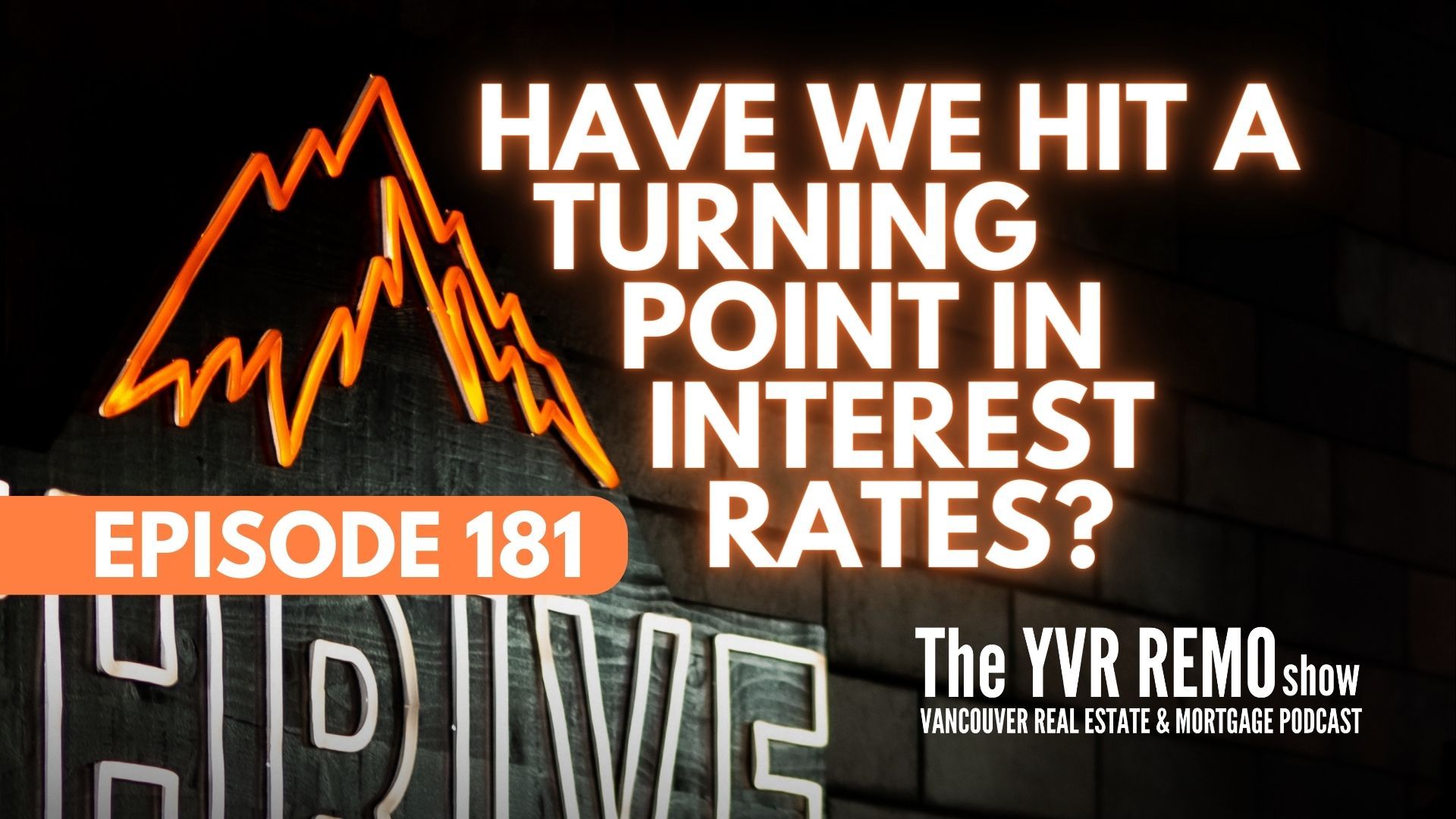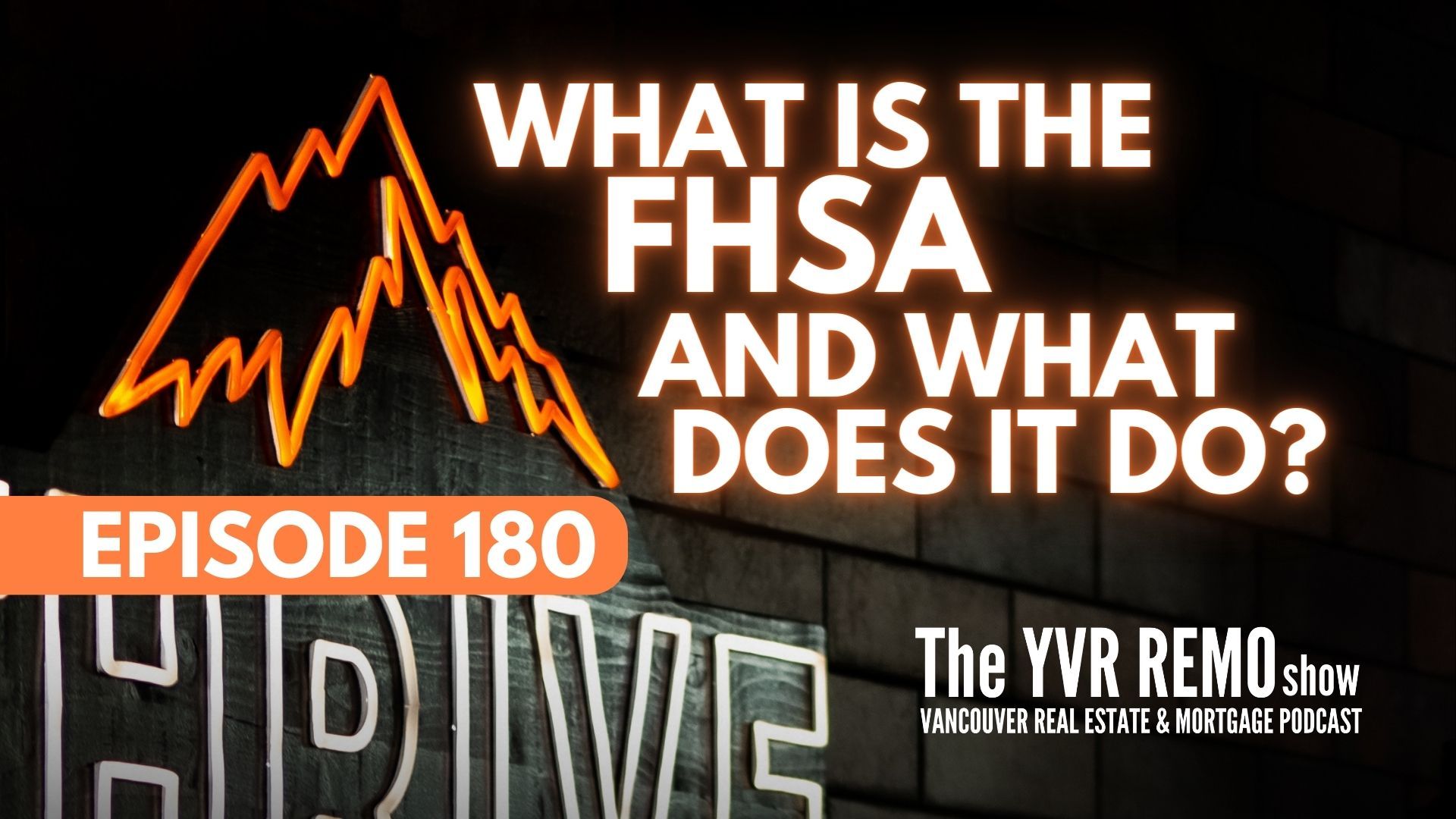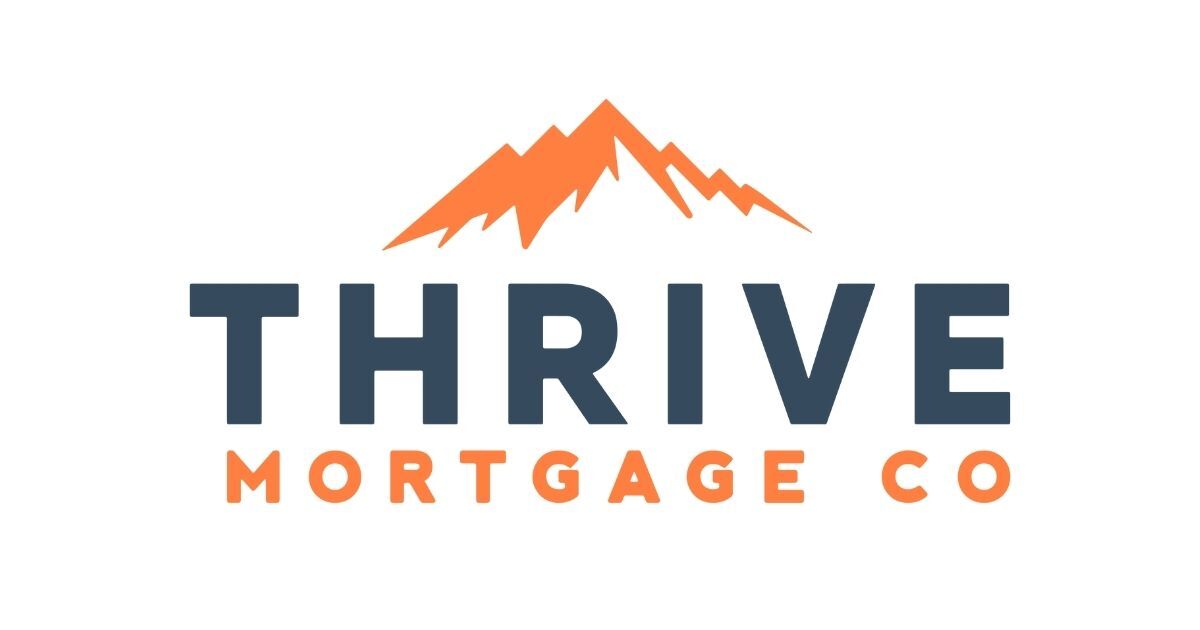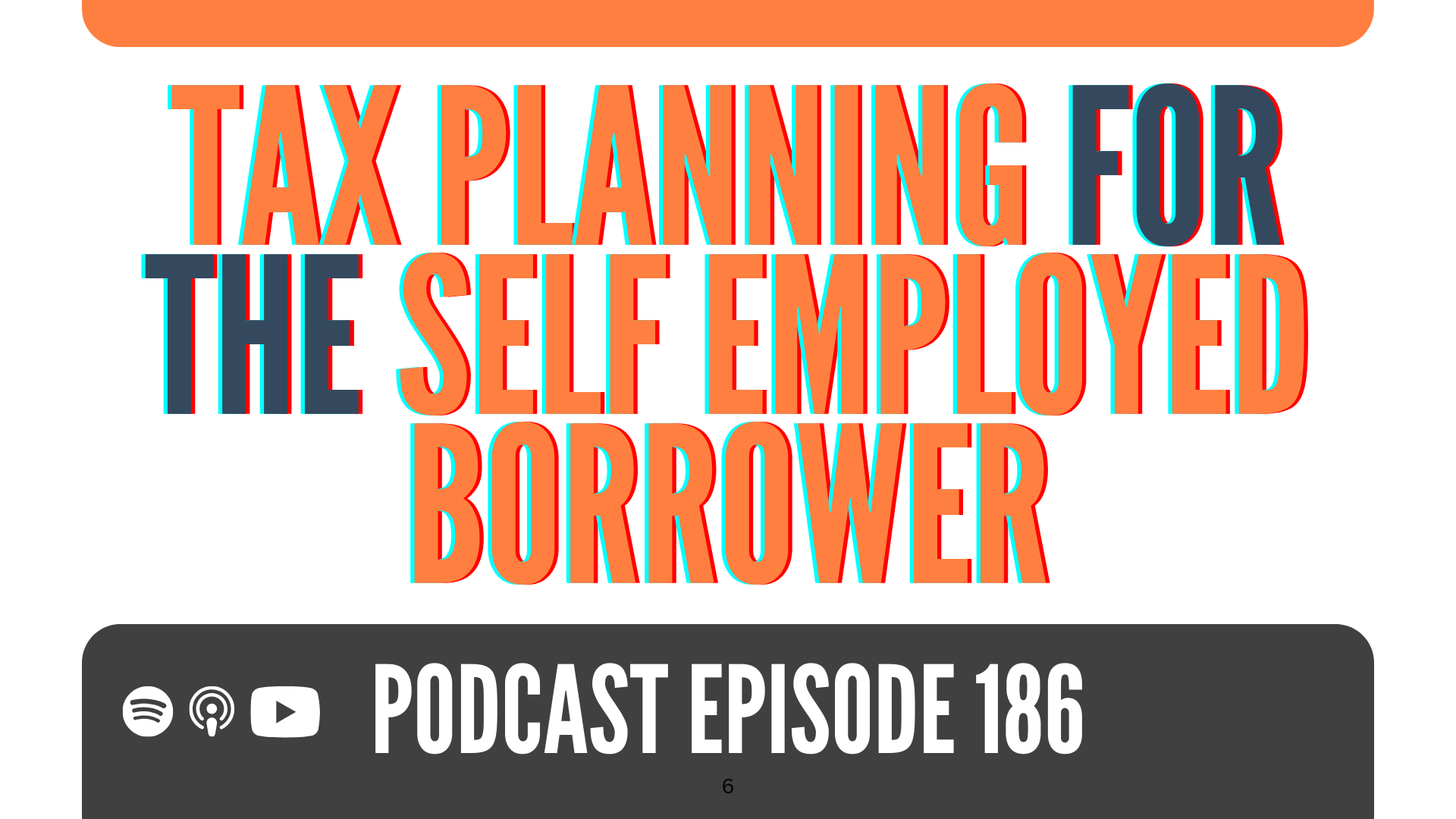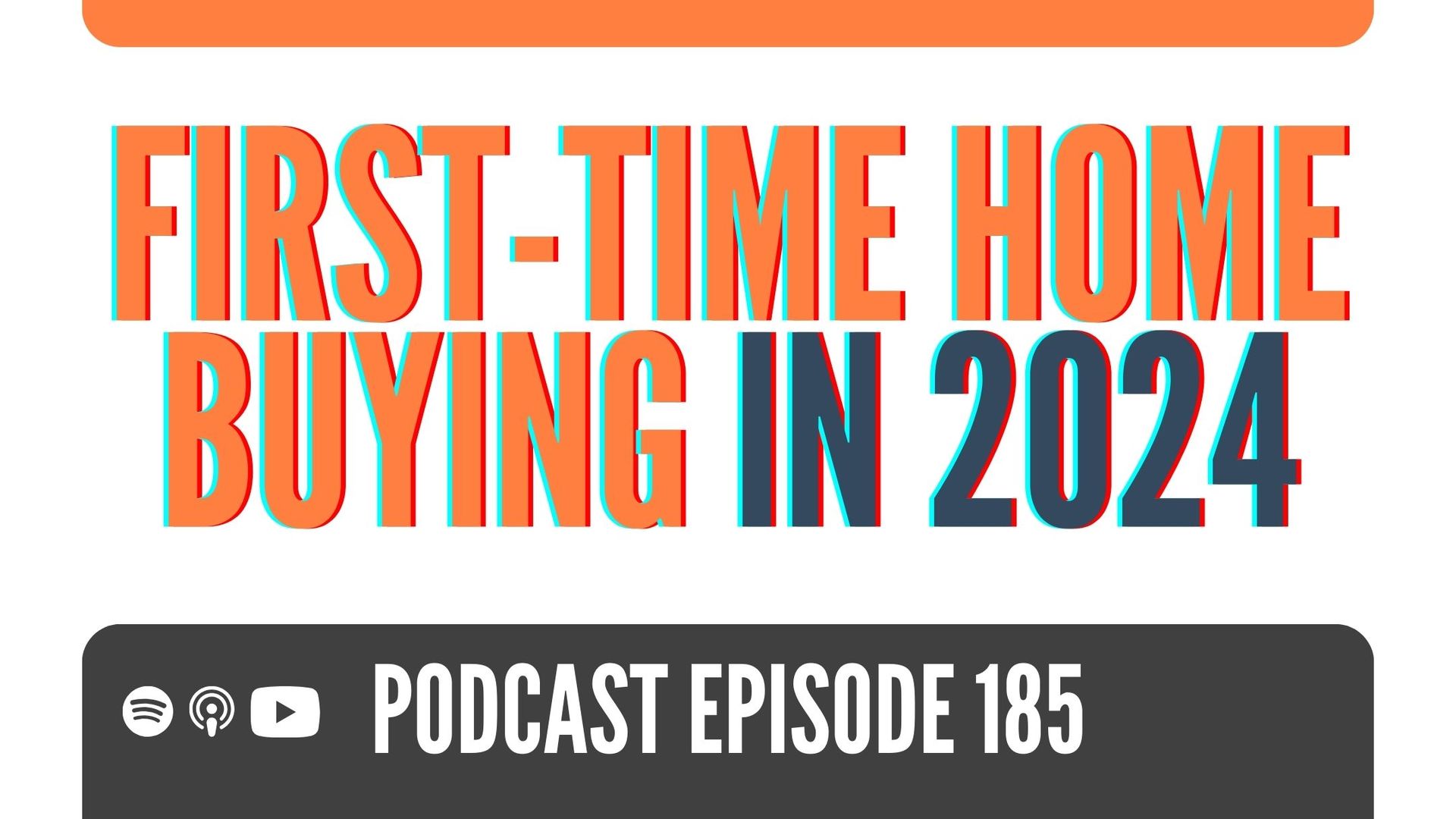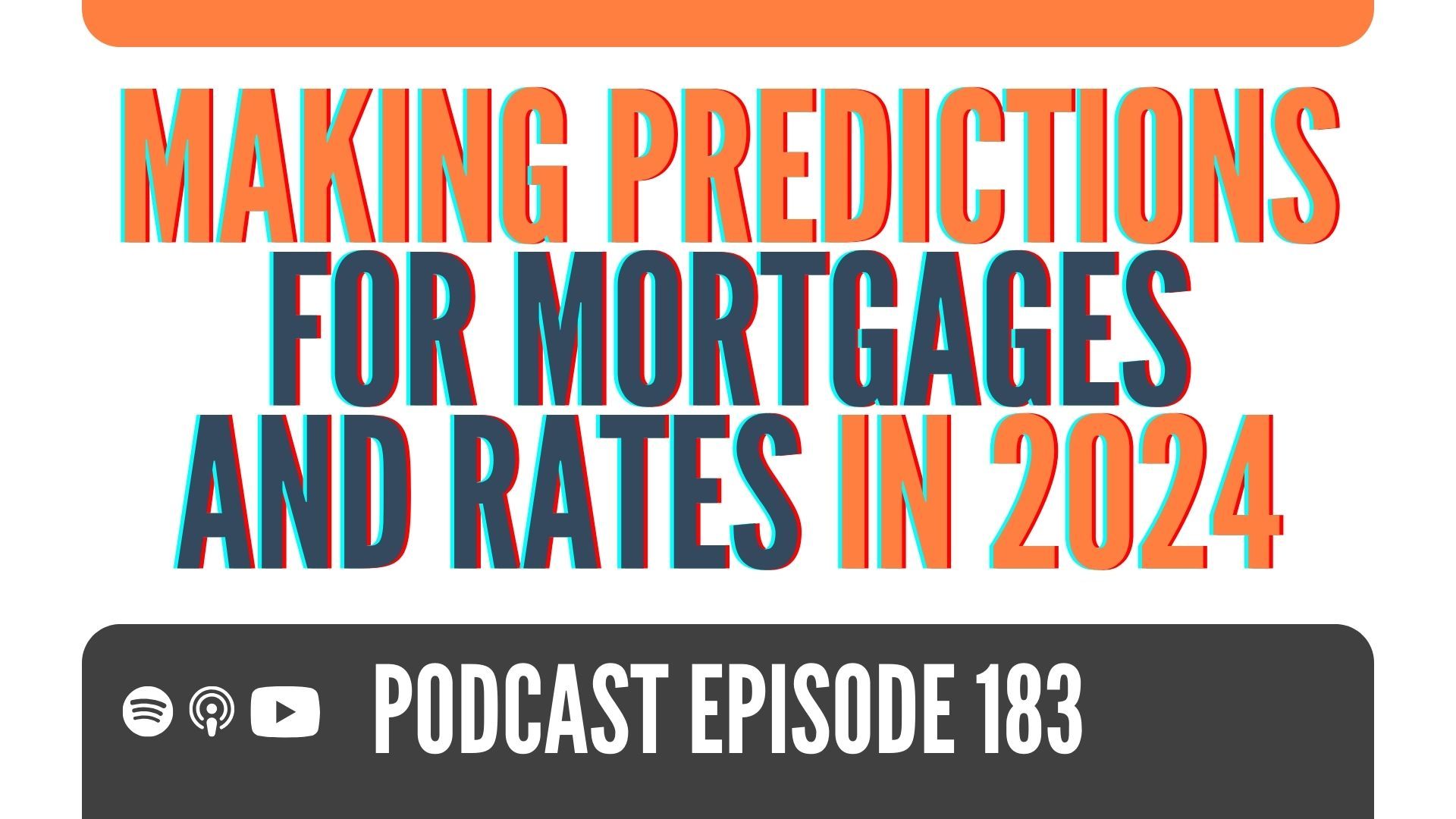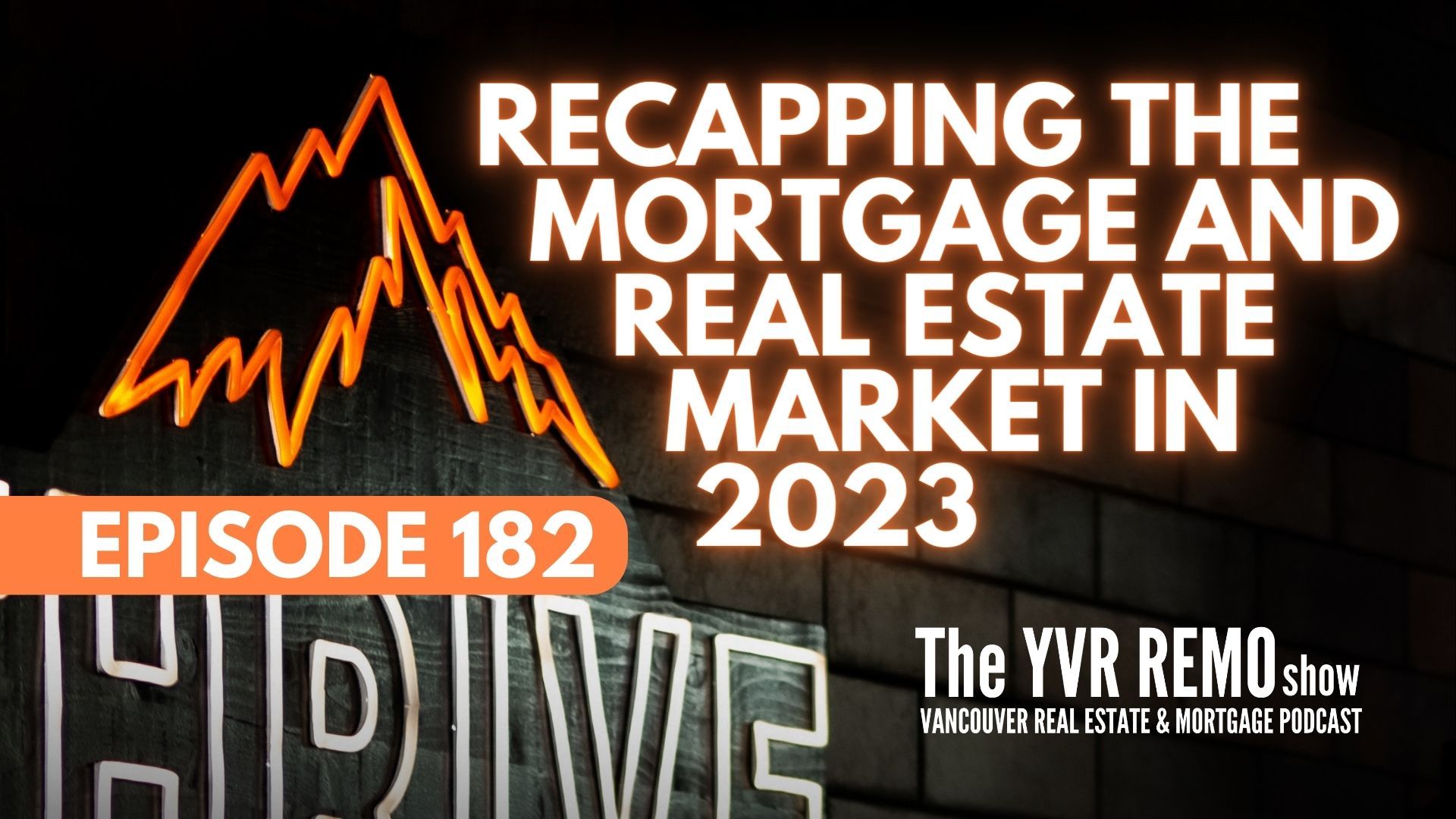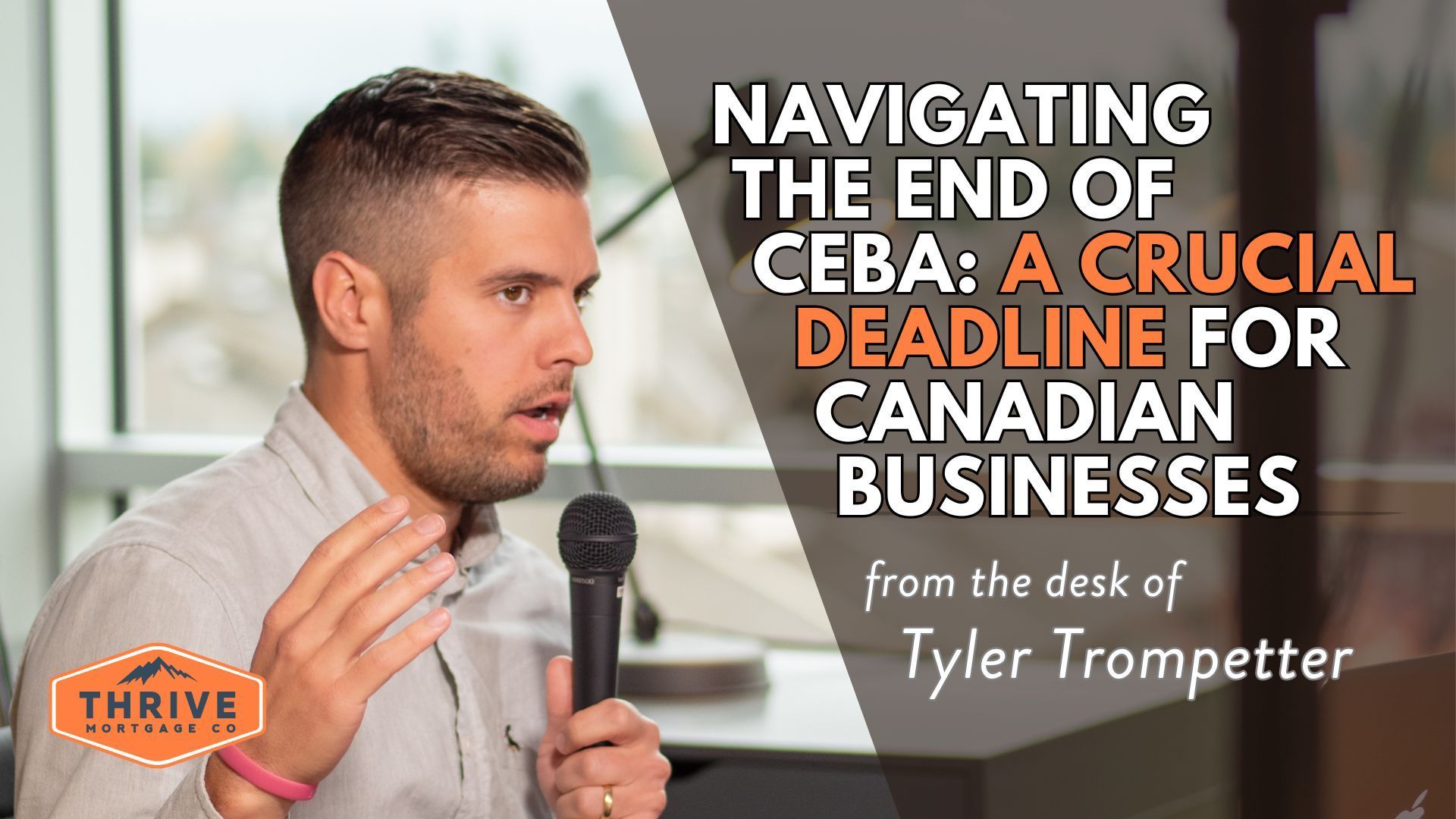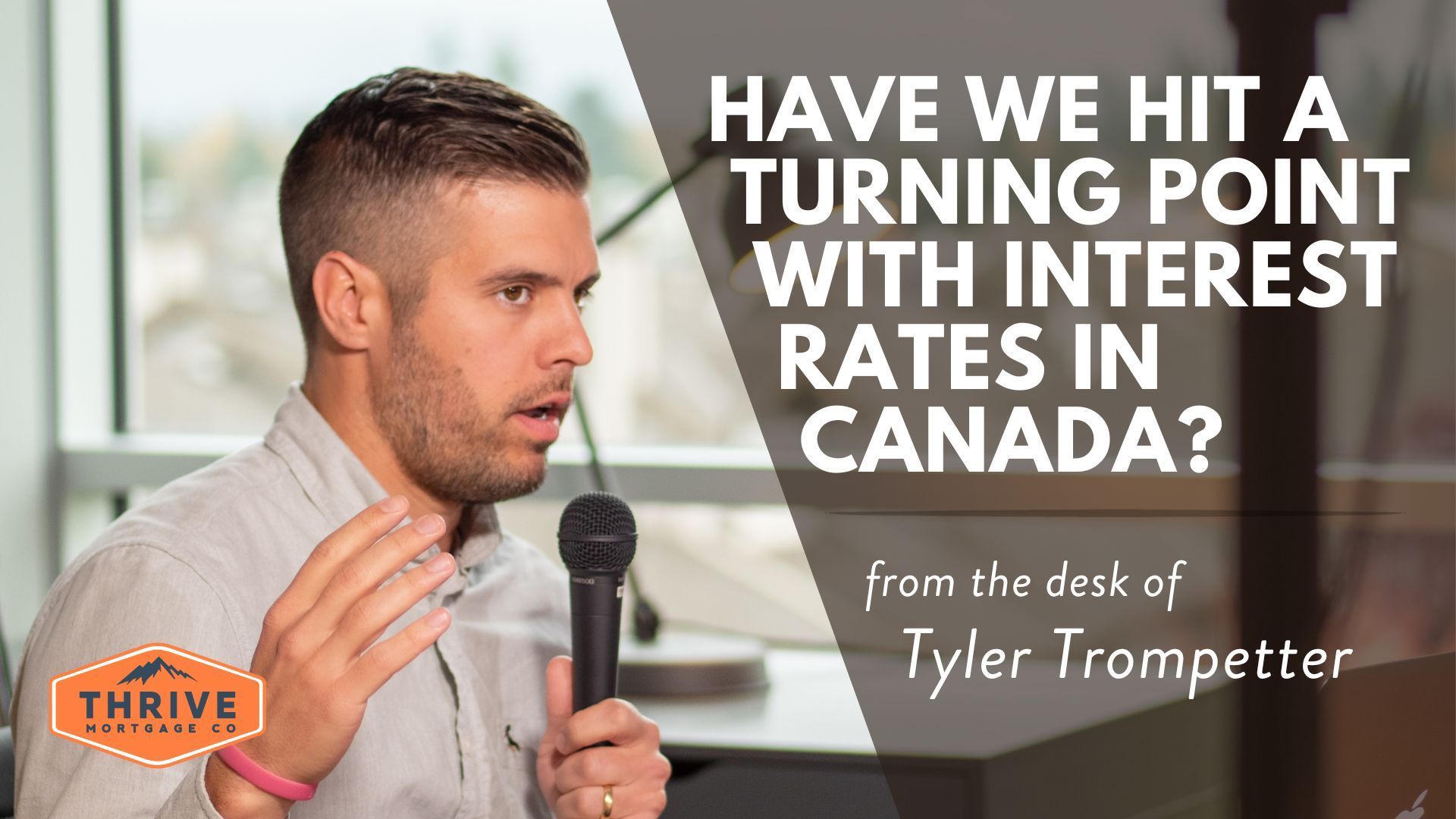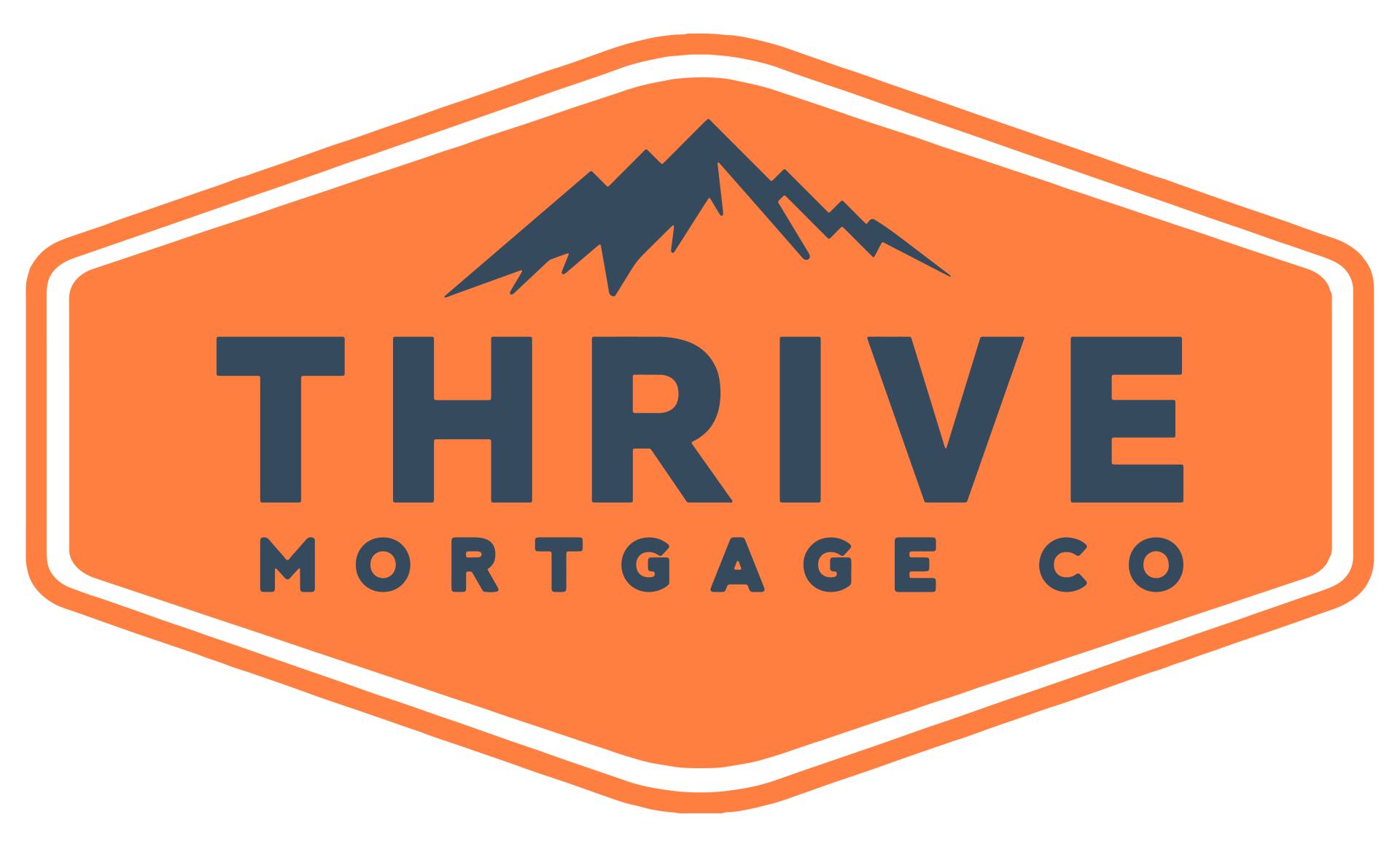YVR REMO Show Ep. 73 - Secrets To Success In Real Estate Investing w/ Jared Hope
Secrets For Success From An Experienced Real Estate Investor
You have to go back to our previous episode with Jared, he gave us a good backstory, a lot of information about where he's from, and insight about the market conditions.
Today's episode is going to be more topical. Jared has been nice enough to pop on the show and help give us a roadmap for the entry level investor. You will get a few key topics, in terms of how to get started, what to look for, what types of areas and so much more. We're going to rattle through four or five different key points that you're going to start looking for as it pertains to beginning investors. Any investor should be looking at these things. It doesn't matter if you're a beginner or not because these are foundational pieces.
Alex McFadyen
Welcome back Jared.
Jared Hope
Thank you for having me.
Alex McFadyen
What are the different categories or areas someone looking for a property should consider? How did you come up with this list of four or five different ideas?
Jared Hope
Experience.
I've been on stages all across the country for years. I've been teaching it and I see people flying in and randomly buying a house. They don't think four or five years down the road. They don't think about what happens in a downturn.
What happens if the market shifts?
It's just a list of just things I see every rookie investor make when they're just starting out. I see these mistakes happen all of the time.
#1. Tenant Profile
Alex McFadyen
I think the biggest thing right off the bat is something that no one thinks about. On your instagram page
@jaredandkrista
You guys posted recently about the tenant profile and the kind of tenant that you want. It's the same thing in our business as far as what types of clients and people we want to work with at the end of the day and thinking about that first. How does someone go about figuring out what kind of tenant they want to look for and why is that important?
Jared Hope
This all started back in 2003 when I bought my first house. I had no idea what I was doing. I was following some agents who told me to buy in this certain area because it was the cheapest and it was the best place to buy. What I found out was it was the cheapest but it was absolutely not the best place to buy because my tenant profile was bad. The tenant profile was perfect for the area. I knew I wanted a different kind of profile than that house was actually giving me. I bought my first three or four houses like that. I was listening to these other people telling me where to buy and I was buying it expecting a different result.
After about number five or six, I came up with this simple strategy, it's just show up where you want to buy. If I was buying in area x, and that's the area I thought I wanted to buy, I would do some recon before I bought there, I would go you know, if I lived on the other end of town. I would drive to where I wanted to buy, because I wanted to buy in an area that gave me the best return. I would go shop at the Safeway or I would go for a coffee in that town. I would walk the streets at 10am in the morning and 10pm at night. I would ride my bike or take the dog for a walk there. I was researching the tenant profile to see who lives there. Was it a shopping cart community? Was it a low income community? Was it a middle class or upper end community? What kind of cars were there? I got to understand that area because of the tenant profile. A lot of times people buy a house in an area that doesn't attract upper end clientele but they think it does. They buy the house and now they're screwed because they're not getting the results that they want.
Alex McFadyen
How do you even build out a tenant profile? How do you know where to start?
Jared Hope
A lot of it starts with your down payment. If you have only $40,000 for a down payment or $80,000, you can only buy X amount of a property. If you only buy a $400,000 property, that’s low income housing and your expectation is a middle class tenant that makes $80,000 a year.
It's almost like creating an avatar. In my management company, we have an avatar for our coaching clients. We're crystal clear on what we want for those types of clients. We also have an avatar for every single property that I bought. Here's the tenant profile; 30 to 40 years old, young couple, young kids, small pet. That means I need a yard, I need to be close to a school, I need parking, and I need to be close to a Starbucks.
Where people have to start if they don't start with the house, they have to create the avatar of what it is that they want for the candidate. The truth is it's so easy to buy a house, it is harder to buy multiple houses and have success because most people don't understand the avatar of their clientele.
Dean Lawton
It's just such a great idea just to get to know the area and go for a walk. What are the types of things you're seeing at 2am compared to 10am? It's going to be a different world and that's where the people you don't want to be around come out.
Jared Hope
I get calls all the time from people from Vancouver who want to invest in Alberta and Edmonton. They'll call me up and say they just bought this property, I'm from outside of Edmonton and it's on 107th and 109 Street. There's nothing but hookers and drugs in that area. It's probably the worst part of town. They got a great deal on it. Their agent says it's awesome. I was there in town at 5pm and we wouldn't check out this place. Were you there at 5am though? That place turns into the ghetto at about 9pm. There's drugs, shootings, hookers on the corners, drug deals on every corner. If you put a tenant in there, they're gone in 30 days. Your tenant turnover and stress levels will be through the roof. A realtor gets a commission and once the realtor gets the commission, they're gone.
Alex McFadyen
So it's really interesting to hear you say that because it's the exact same thing that actually some good real estate agents that we work with advise our clients.
Jared Hope
There's a lot you can read on realtor.com or MLS, you can click one of the tabs in any property in an area that's listed. They're going to tell you the average age and the average income. Don't buy into that info. They take a 20 block radius. There's a lot of little pockets in that area that are different especially when you're buying in the downtown core of a city. If you're buying in that downtown core, a 10 block radius can have five different areas.
Nothing beats traveling to the property. Before you remove conditions on a house, go visit it if you're going to do the homework before you put an offer in. Be very careful with conditions because you really don't know what you're gonna get until you buy those.
#2. Location
Alex McFadyen
Number two is about the area, which we're already talking about right now. Let's just build on that. There's a lot of people who want to invest in different areas in different cities across the country. When you're talking location, there's probably two levels to that, high level being city and the lower level being neighborhood. What are your thoughts? From a high level perspective, how does somebody pinpoint?
Jared Hope
I would say macro/micro. The macro is the city, which city you invest in. You want to look at areas that are going to lead the country in GDP, gross domestic product. You want to look at natural resources. Tech is big here out in the Okanagan, there's a lot of tech stuff happening. The movie industry is picking up a lot here in the Okanagan as well. You want to look at whatever the big sectors are. Are they in an upward swing or a downward swing? You want to look at net migration into the city. You also want to look at job creation and unemployment, how do they compare to the rest of the country? If the unemployment rate in the country is 4.5%, and the city you want to invest in is sitting at 6.8%, might not want to invest there. GDP growth is a big indicator, that's the number one indicator that's going to decide if the city's going to take off or not. These are all macro.
There's some simple signals that are pointing to the micro. That's when you get into different communities in the city. That's where it's so important to understand your tenant profile. I got probably 20 to 25 properties that would be low end, my rents are dirt cheap and my tenant profile is low. That's my avatar and those tenants work, as long as you have the right property for them to live in.
When you get into the smaller areas, a lot of it's going to depend on what your credit profile is. I only buy within a five to eight block radius of Starbucks. I only shop around schools who do not have hot lunch programs. Nothing wrong with a hot lunch program, I think it's a great system. My kind of profile doesn't fit that mold 85% of the time. My tenant profiles, they drink coffees from 7/11. My tenant profile there has subsidies for daycare. They all take classes or train systems for transportation, parking is not a requirement. I can buy a little bit denser properties. It's really important that when you fly into a city, you understand that certain areas have their challenges. You have to flesh out what those are, and then say, is my tenant going to be bothered by those challenges? If they are, then you don't buy it because you're going to have high tenant turnover. That's going to create all types of headaches.
I like major road transportations. I'm going to reference Edmonton because I invest a lot in Edmonton. If you were to take Edmonton and break it into four quadrants north, east, south, and west and then if you were to break that down even further and say where's the light rail transit or train system? I sit there and say, Where is the train going next? The train has to go in the northwest section, they're not going to put another one anywhere else because it doesn't make any sense. Right now I'm buying specifically in the northwest part of the city with the requirements of within a five to eight block radius to Starbucks. Within a five minute drive to shopping and a non-hot lunch school system or programs.
I love roadways and I love potential. I think areas in transition, they can take a long time to get in transition. I don't want to be the first one or the first 20% of people in the area of transition. There's all kinds of headaches that come with it and to be totally honest, it's not worth it. I want to sleep at night, I'd rather have strong cash flow than have the headaches of hoping for the home run in 10 years when that area finally transitions.
Alex McFadyen
And that's traditionally been kind of what we've seen a lot of in the Fraser Valley in the last few years where people are getting in on the bottom floor and habits of success as far as purchasing pre sale properties and so forth.
Jared Hope
That all works when the market is going straight up. Everyone looks like a rock star and everyone looks like a genius. I'm reading all kinds of reports in the Okanagan. Right now they're saying things are starting to slow down. For the first half of the year, the market shot up and in the last 30 days the market started to taper off. Now they're saying that they're expecting a flat market potentially. Depending on what report you read, it's either going to be flat, or it's going to be like one or 2% increases over the remainder of the year.
Everything is great when the markets are like this, but what happens if it flattens out or drops a little bit? Now you're buying on this hope of a transition that if the market shifts, that transition just extended its timeline, and now you're getting a lot longer. I'm not saying don't buy it, I'm just saying be aware of all this stuff when you go into it. Now you can make educated decisions. You buy a house in an area of transition. That is the second purchase but your first purchase is what I call a big brother. It's one that can absorb a mistake. If something were to happen, a big brother's like a sweetened house that cash flows $1,000 a month. You go buy a big brother suited house that has strong cash flow. There's a way to insulate your portfolio that you're always protected with little risk.
Dean Lawton
Are there any exit strategies that you consider or is it always long-term cash flow? An exit strategy would obviously be the development property, the transitioning area. Is there any other exit strategy that you're considering as part of your checklist?
Jared Hope
That's a question for someone who specifically invests in Vancouver or in Edmonton. We don't really see those types of things happening because it's not like someone's buying three houses on a block and tearing them down and throwing up an apartment building in Edmonton. We have so much land and we're so spread out, it just doesn't happen. I'll answer your question this way, every house I buy, I plan on holding it for eight years.
This actually goes back to the last point I had, which I'm going to touch on a little bit. If you buy a newer type of property, you always have options to exit. An older type of property, your options to exit become less, because you might be able to sell it in a down market. This is because it's an older home someone's going to walk in, they're going to grind you on a price if the market shifts are going to grind you out of price. If you're always buying the newer homes, under five years of age, you'll always have something called wow factor. That’s when someone walks into the house, they're like, wow, this is awesome. The furnace is good and the roof is good. The house could be 15 years old but the person buying it won't factor in that they have to replace a furnace in 10 years. The roof has 10 more years of life. They're not going to think like that, they're going to say it's still good. Buying the older home, if you ever had to transition out of it, they're going to come back and say the roof that's $10,000 or maybe $7,500 for the windows.
#3. Age Of The Home
Alex McFadyen
Age of the unit, newer versus older, you mentioned something five years old or younger. There's one end of the spectrum being younger homes less than five years, then older homes, probably something that's 30 to 40 years old. Is there a happy medium where you've seen a lot of the work being done? What are the biggest concerns around age that need to be looked at if they're looking for something to be a little bit older?
Jared Hope
When I started investing years ago, I was taught to do nothing. Small changes like changing the light fixtures or maybe a coat of paint. That actually worked back in 2003 However, that actually doesn't work today because the client profile is so different. Everyone wants the new taps and the fancy lights but then they want it for cheap.
I'm a big believer of always renovating at every chance you can and at every opportunity. Edmonton for the last year and a half has been pretty flat. It's been pretty slow and clients don't have a lot of money because rents have actually shifted down a little bit. They're starting to creep back up now. A client will come back to me like, I can't afford to renovate it so let's just lower the rent. Find the money to renovate right now because if you sit vacant, as we renovate this house for three months, you might lose $3,000. You're going to do the rental but if we rent that place out for $200 less for example, if in two years that tenant moves out and the markets are hot, now rent is $2,000 because that's what happens in Alberta. Rents like literally double overnight, now you're losing $2,000 plus that rental has gone up 20-25% because labor is going to go up. Now it's going to take longer to rent the house if you don't do the renovation. In a year when the market shifts and that tenant still stays there, we can crank up the rent and I'm not talking about a 2% increase. I'm talking five $600 increases because that's what we can do in Alberta.
There's a lot more pros to renovating earlier than delaying it to later. Your income goes up, your turnover goes down, your repairs and maintenance go down, your long term success is huge.
Alex McFadyen
I don't know if you dabble in stratified properties as well as detached homes. Is there a big difference? In what age are you willing to go with a stratified unit, forgetting about the intangibles?
Jared Hope
I don't like anything strata.
I just had a client messaged me the other day. He's like, hey, if you were to buy a condo anywhere in Edmonton, what area would that be? I replied back, I would never buy a condo because they make no sense. I have 151 properties and one of them I have a condo, one of them is a strata. The 150 other units, my tenants shovel, my tenants cut the lawn, my tenants pay their own water, my tenants do their own cleaning. Why would I pay condo fees for all that? All that does is eat out my cash flow. My condo fees can go up $100 just like that when I can only raise rents 2% in Vancouver. Whereas if utility fees go up $200 that's on the tenant. That's not on me, it doesn't impact my rent and the tenants are going to pay that anyway. I just don't dabble in condos. I don't touch anything with strata.
Alex McFadyen
Is there a break even point in terms of the age of a detached home that you would invest in?
Jared Hope
I have lots of detached homes that were built prior to 1965 but what we're doing now is when they come up for renewal, we're renovating them. I bought them 15 years ago, and now they've lost that wow factor. Maybe they never had the wow factor when I bought it and we've been able to rent it out this whole time, but the tenant profile has changed so much over the last 10 years. Typically, what I find is tenants who rent out the single family detached houses or the single family homes, they're going to stay there up to 10 years. They typically don't turn over all that much. When they do turn over, we have to fix the house because whoever was living in there is not the same kind of profile as what is coming.
Alex McFadyen
This all leads us to our final point, determining what your cash flow is and how to determine that based on all these other factors. Where do you start out of all these things?
Jared Hope
The newer the house you buy the tighter the numbers can be, the older the house you buy, the looser the numbers have to be.
Cash flow is your rent minus your mortgage, minus your taxes, and minus your insurance. Those are your three set prices for most of the year. Then it's going to be minus your vacancy rate. This is where people start fudging their numbers a lot,. They'll sit there and say I'm going to manage it and I'm going to impeccably manage it. This thing is never going to be vacant because it's 0% vacancy in Chilliwack. Instead of using a real number like 3% or 4%, they are going to use 0%. I would say always use 2% to 4% no matter what city you're buying in. You're always trying to create a number that is like, here's the best case scenario.
The other thing that people start skewering their numbers on is repairs and maintenance. They don't actually understand what a mindfuck it is to go in and clean up the house after a tenant. What people will do is they'll actually use 2% to 4% for repairs and maintenance. I believe an older home that has no renovation done should have repair numbers as 8% to 10% every month taken off the rent that allocates to what I call low end repairs. If the home is older, then you have to assess the furnace, the roof, the windows, the water tank, and garage doors. If all of those are 70%, you want to allocate $5,000 minimum per item and set that aside in the count. Those are what I call long term expenses. You want to set those big ticket items aside when you buy the house.
Property management would be the last one where people start fudging their numbers. Property management companies typically charge 10%. Most people will come back and say I'm going to impeccably manage this myself. That all works fine and dandy at the beginning. If you buy a house, and with our management fees you cashflow $100, that means with cash with management your cash flowing negative $300 because you got to pay someone to do it. This means the minute you want to transfer that property out to somebody else to manage, you've instantly lost money. That's the wrong way to play the game.
Alex McFadyen
You probably figured out a location that you're interested in and you've gone to a neighborhood. You figured out the tenant profile, as we discussed, you have a general idea of the type of property. If you’ve got three neighborhoods that you’re interested in, then is it just looking up rents on Craigslist or Facebook, what are you doing?
Jared Hope
I created this, it's called a ghost ad. In 2005, I started doing this and I started sharing it on stages. I'd encourage anyone to do this now. If I narrowed it down to three areas and three different houses, I would run ghost ads which are fake ads. I would put up an ad and I would say, house for rent. I would run another ad and I would see what kind of traffic came in. Someone would email me and I would say it just got rented out but I have another one coming up in 30 days, are you interested? What I'm doing is building confidence that I might know what my rents are. Secondly, I'm building a list of potential clients that might want to buy it if I decide to remove conditions on this house or put an offer on it. It's a great strategy for people who go unconditional. They'll have to close quickly and then they want to rent it out quickly. That's the best way to get to know the market because you can research rent faster. We have about 17 to 19 places for rent, for example, in Edmonton, and we have about 45 ads running. From those 45, 18 are real ads. We're testing the market. We're seeing what's going on with the market. If you're now researching the market and then you look at my fake ads, my ghost ads, you might be screwed because I might be marketing at $2,200 when the real rent is $1,600. If we have a place that’s $1,600 we’ll go market three or four places for $1,800 in the same area. What we're doing is we're pushing traffic to this $1,600 property.
Dean Lawton
For all we know, there's 100 ghost ads on Craigslist of other people doing this same thing you're doing. It could technically mean nothing. What is somebody going to pay? That's the best way.
Jared Hope
When someone calls, it's like, sorry that place has been rented. I’m just taking my ad down, or I have a couple applications on it. Let me get your name and number. I'll let you know if things change. That place is going to rent but I have another place coming up. It's market research. You know, that's how I look at it. You want to know what someone's going to pay for your product before you start bringing in the product. Big companies do it so why can't I do it for my own rental?
Alex McFadyen
Putting it almost like a test data, we tell our clients to consider doing that if they're renting out a property and they have no idea what it's going to run for prior to closing. That's a big one. It really pushes someone to it.
Jared Hope
I did this on Facebook, I ran a couple big ads. I mistakenly used a similar picture to another house. Facebook shut me down. They kicked me off Facebook marketplace. I was off Facebook marketplace for six weeks, I had to file all these reports and complaints. They had to investigate for me to come back. They have these algorithms that are watching all their pots. Don’t use the same pictures of two different properties. They'll collapse your account.
Alex McFadyen
Looking back with the information that you have right now, where would you tell someone to start? What's their square one starting point of these different topics we just talked about?
Jared Hope
I would start with noting how much money I had to play with, because that's actually going to be the start of the game. I have $100,000 to play with. At 20% I can only buy a $500,000 property. From there, I'd actually sit and say, here's the half a million dollar properties in the area. I start working backwards from there saying, where's the best candidate demographic for me. I want him to drink at Starbucks. I want candidates to shop at Home Depot. Make a list of places your avatar would go and then start narrowing it down in those communities. Once you narrow it down to five or six communities, I would start walking the streets. I've walked the streets at five o'clock at night, two o'clock in the morning, I would shop at all of the local stores, I would eat out at all of those local restaurants. I would live there essentially. I would do that for probably about a month. After that month, I would narrow it down to my top two communities. When a house comes up, there's no research. I know the tenant profile. I know the demographics. Before you actually go buy I'd actually go look at the rents as well, what's the rental market doing? What's a typical house like this renting for? I would actually start with some recon on the communities to narrow down to my top two or three.
Dean Lawton
It's exciting to hear that for somebody that's not ready to buy or doesn't have the down payment or working on their plan. It's exciting because they can go do that recon now and feel like they're getting invested and getting involved in the game.
Jared Hope
Well, I tell this to my coaching clients all the time. Number one, don't call up anybody. Don't ever call me up and say you're building a power team. Go do the research and then call me up and say, I'm getting ready to buy a house versus I'm building a power team. There's things that you can do without a realtor and without a property manager. You can find your three or four communities, narrow it down, and start identifying your avatar. You can start living where your avatar lives and start doing some recon on what market rents or what house prices are. Then you go to a realtor and say I'm buying in this area, here's how much it's going to sell for and here's what I'm buying it for. Here's what my target purchase prices are. Here's what it's going to rent for. Here's my tenant profile. Here you go. If someone came to me after doing all this, I'd be like, this guy is serious versus I'm getting ready to buy and I'm building my power team.
Alex McFadyen
A lot of people haven't known where to get the information or haven't felt like it's been easy access. I'll get calls like that from time to time just like, hey, I need to build this plan or I need to build this team. I think they just need to hear from someone like yourself who's in the who's done this to say it. It is a little bit of work, though, money's not free.
Jared Hope
You put in the time and the energy upfront, it's going to make it so much easier down the road. You see it all the time. A lot of people, they'll just take someone's word for it. I don't trust a lot of people and if anyone tells me to do something I researched before I go do it anyways. There's a lot of people that will just take someone's word for it. This is your house when you close, so let's make sure it's the right fit for whatever it is that you want to do. I think everyone should be buying for eight year increments. That house should be revisited to sell and I'm not saying sell it, I'm just saying that at the eight year mark, you should look at selling because at the eight year mark, you would have bought down enough to recover double your money. You would have got your original investment back plus you would have made double your down payment. That's a good time to sell. Once again, that's an avatar of the property. Most people, they just buy a house and then they think they have to keep it for 25 years. I just think that's the wrong way to play the game. It's like buying the house when it hits X and liquidating it. If it hits X at number eight year or it hits X at five years or at 15 years, that's fine. That's when you end the game. And it's the same thing with the tenant profile. It's the same thing with quality of property. An area can shift in eight years. You might buy an area in an up and coming new community but eight years later, that area is not an up and coming new anymore. All those people, if they're all starter homes, they've all moved out. All of a sudden all the new people who've moved in, maybe they're a different crowd and all of a sudden the area's changed. You have to be re-evaluating everything every eight years.
Alex McFadyen
Demographics of an area can shift every seven to 10 years easily. We see it happen to everyone. Every single city typically sees these types of things happening, especially in Canada.
Jared Hope
I'm gonna shift my tenant profile to match the current demographics of the hurricane now it's going to work versus thinking you're going to get something else and it's producing a different result. That's where all the frustration comes with people who never re-evaluate their business.
Visit Jared's Website Below
https://jkcoaching.ca/
Have more questions? Get a hold of us!
We're on Instagram!
instagram.com/thrivemortgageco
Check us out on Facebook!
How to Reach US! 📲
Call 604.398.5575 or Email us!
More Questions or READY to get started!?
Just Ask US > Click Here to set up a call or EMAIL us
